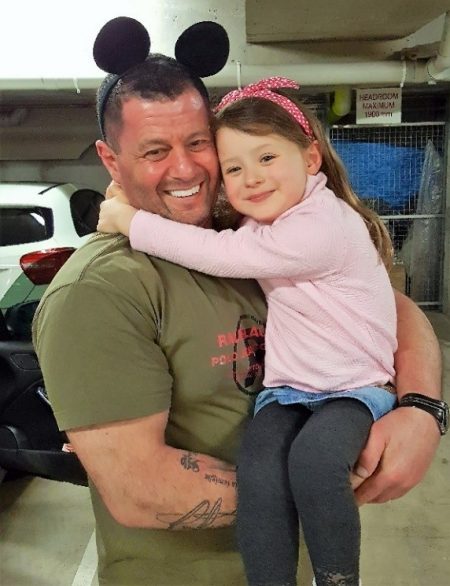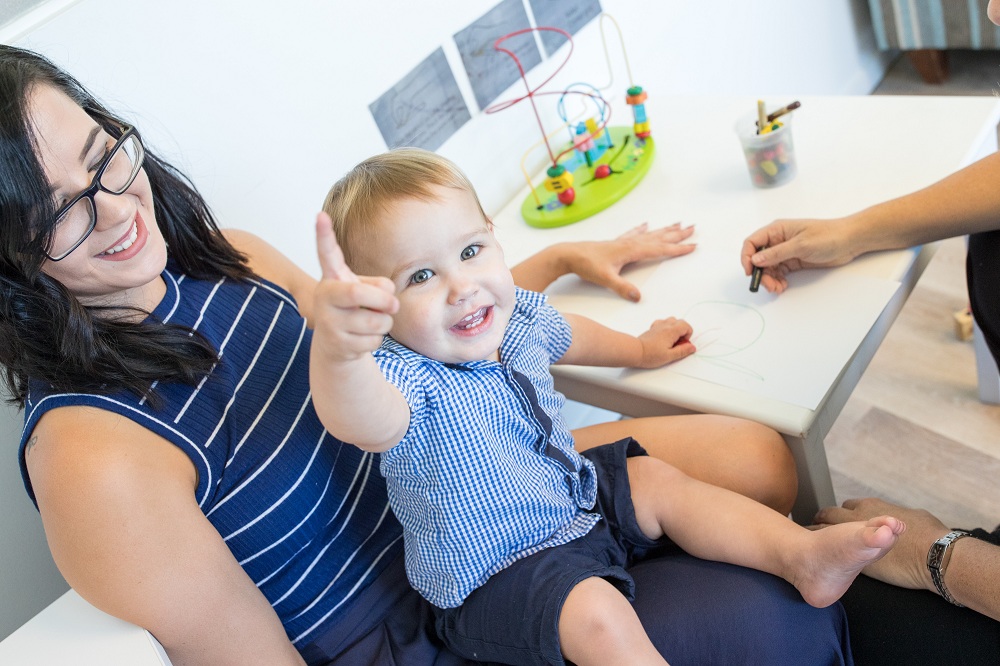
What does it mean to be a “father” in a time where the base identity of a “male” is being challenged, even called “toxic”?
What challenges or opportunities are present for me raising Charlie in a family where there is no mother, no significant female role model?
I keep hearing if Charlie is a “daddy’s girl” or if “she has me wrapped around her little finger” (which are both definitely the case) I may hinder her growth as an independent and self-sufficient individual.
As an “old school man’s man” coming into this parenting thing with a daughter for the first time at 49, found me lying awake at night worrying about, not only the stuff I didn’t know but also the stuff apparently, I’d been doing wrong all my life! (how does someone get to 49 without knowing you must NEVER wipe your butt in the wrong direction!!)
I absolutely loved (and still do) everything about being Charlie’s dad right from the start, her complete dependence on me, filled me initially with fear and terror, then a sense of purpose and achievement like nothing else. The night feeds, the nappy changes and bath time, having this amazing little miracle relying on me was the most masculine I’d ever felt!
Then just after Charlie’s 2nd birthday, I was thrust into the role of both mother and father and except for the support of my amazing mother and sister, it’s been just Charlie and me for the last 5 years.
In that time, I’ve cried more than I’d cried in the entire 49 years before. I struggle to hold in the tears every single time Charlie has a needle, I sat in the in the car and cried like a baby outside of Charlie’s first day at kindergarten, I cried at Charlie’s first ballet class, first gymnastics class, so many tear-stained firsts! Every single birthday still sees me incoherently trying not to embarrass her. Yet I feel more masculine than ever.
I still remember buying Charlie’s first school uniform and seeing her in it, I cried so much I was getting hugs from complete strangers in the store. Afterwards, we split a milkshake and tried to calm me down. Then the realisation struck, we were moving into the next phase of our life together and there would be entire days apart.

Was Charlie Ready?
(I knew I definitely wasn’t!)
Up until this point it had been all fun and games with no real parenting philosophy, just go with the flow and have fun spending every minute together.
Almost every night for the last 5 years Charlie has crawled into my bed to elbow and kick me like some midget ninja. Yet I’m told she needs to sleep in her own bed.
Why does Charlie need to sleep in her own bed every night? How can I say to her (or more importantly show her) “it doesn’t matter when, where or what it is, if you need me, I’m there for you”? (I’d hate to think of her hesitating to call me in the middle of the night when she’s 16 at a party)
Charlie has no concept of my personal space, always on my lap at movies, restaurants (even under the impression its “our” dessert?), at home this kid must be on top of me like a barnacle. Not sure why we even have a toilet door anymore.
“How will she cope if she has to be away from you?”
I hear this all the time and yet Charlie’s fearlessness is sometimes a little disconcerting for me. Charlie will try anything I challenge her to do, shows no trepidation about going away from me. We’re extremely lucky to have so many female friends in our life and Charlie relishes a girl’s day out without me and enthusiastically goes for sleepovers whenever she can. (I’m the one who struggles)
Charlie and I can’t be too attached. It’s our rock-solid attachment that allows Charlie to trust me, allows me to guide her. It is our unconditional relationship that frees Charlie from looking for love and to allows her to grow, Charlie shouldn’t have to work for love, not with me and definitely not with any future partner. Charlie needs to see the example of love not being conditional on certain behaviours, compliance or convenience.

There Are Two Things Charlie Should Be When She Grows Up;
Who & What She Wants!
I’m 50 years older than Charlie and the reality is she’ll spend the majority of her life without me, so the ultimate goal is raising Charlie to become her own separate person. I want Charlie to have her own mind, set her own goals, come up with her own reasons, make her own decisions, think for herself, set her own boundaries.
Because Charlie feels certain her need for unconditional love will be met, she doesn’t have to be preoccupied with pursuing me. Because she knows she can count on me as her dad, protector and provider, count on me to guide and nurture her, Charlie doesn’t need to cling to me.
Charlie used to cling to me as a pre-schooler out of insecurity. But it is her security in our attachment that frees Charlie and allows her to let go of me; attachment isn’t the enemy of growth but insecure relationships will be, both now and in her adult life.
Don’t get me wrong I still need to be the disciplinarian but just as importantly a nurturer, never a feared figure but an example of respect and affection, the traditional gender roles in a relationship isn’t something I’d necessarily want for Charlie’s future relationships. Charlie needs to be convinced of her value and recognise when others don’t.
I still need to be caring but firm, Charlie has to know she can depend on me (even more so as her mum isn’t in her life) if she’s told her behaviour is not okay, I make sure she understands that the relationship still is.
Charlie needs to feel safe to depend on me, so the idea of using what Charlie cares about against her (e.g., sanctions and withdrawing privileges) or forms of separation-based discipline, such as time-outs just doesn’t sit well with me.
Most importantly, I realise that Charlie is always watching and that what I do matters way more than what I say. I need to be asking myself what is Charlie learning about life in general, about morality about how people should treat one another, about relationships from observing me every day?”
My masculinity used to mean not being comfortable showing (or even admitting) fear but since girls tend to look to their mothers and immediate family for models of bravery (boys look to public figures) and as Charlie doesn’t have her mother in her life, it’s important that I share my fears with Charlie, as well as how I tackle those fears.
How is Charlie seeing me be brave?” How is Charlie seeing me struggle, seeing me fail?
Having Charlie see me fail and seeing me recover shows her how to be resourceful and resilient. I’m constantly and genuinely asking Charlie for help, input and opinions, she grows ten feet tall when I tell her we’re a team! This kid loves to feel as though she’s contributing to everything around the house.

Charlie doesn’t need a hero who’s infallible, invincible or stoic.
I need to resist the urge to rescue, to remove obstacles, to pick her up when she gets knocked down, Charlie needs to build the mindset that failing and recovering is the natural order of things and the only way to true growth, over and over again, so she believes she can do it herself.
I can’t rob Charlie of the “gift” of failure. Failing at the small things, especially while Charlie is young, will allow her to develop the resilience and confidence she needs to tackle larger issues.
One challenge as a dad raising Charlie on my own is, I’m unable to speak through experience about what it means to be a woman or the myriad of things that go with that. So, it’s important that Charlie’s feelings are never dismissed as trivial. As her dad I don’t need to understand, I just need to know it’s important to her.
It’s down to me to guide Charlie through milestones like puberty, menstruation and interest in boys. (Apparently, I’ll be expected to eat ice cream with Charlie straight from the tub after failed relationships? don’t need to understand it just needs to support her)
These things, as a male will be difficult without Charlie trusting me, it will be about me learning with her, although that’s exactly what we’ve done together, as a team from day one!

Who’s raising who?
This kid has taught me just as much as I have her. When you realise your kid wants to be exactly like you when you realise, she looks to you for how to respond to life and its challenges, what to value and what to dismiss, looks to you for the example of love, honesty and empathy, you do better.
When you realise, you’re her example of how someone who loves and respects her should treat her, you realise you need to support and nurture who she really is and not try to control or create who you think she should be because the thought of anyone controlling this kid breaks my heart, so you do better.
When you realise getting a surprise bunch of flowers makes your daughters day when you realise you might be the standard she accepts from future partners, you do better.
When you realise the way you speak to her will become her inner voice, her self-esteem, her confidence is all down to you. The way she perceives herself and others will be a reflection of the values you display, the way you react and even the lunchbox notes you write, you do better.
So, you might call Charlie a “daddy’s girl”, you might say “Charlie has me wrapped around her little finger”, it doesn’t really matter, no amount of distance, time or disagreements will ever break this team apart. Our bond couldn’t be better!
You may also like to read:









